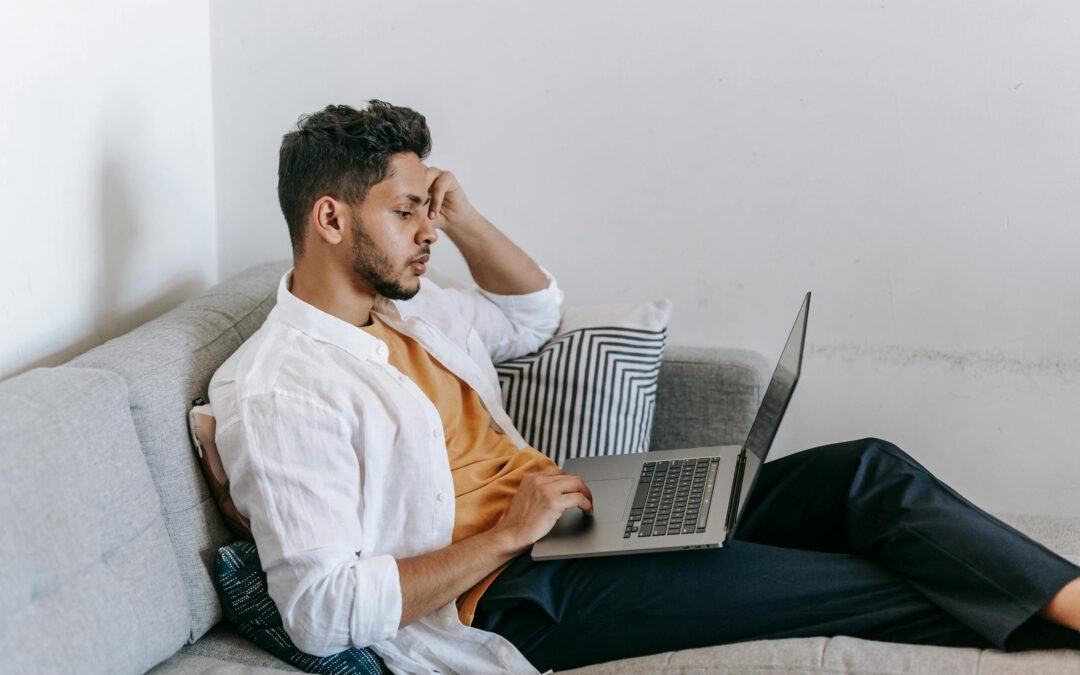This month’s subscriber question, comes from Vish:
“I used to work in an office five days a week, but now I work from home almost all the time. I’ve noticed more sleep issues lately. Could this be due to not getting outside as much since I’m no longer commuting?”
My Answer:
Many of you have been curious about how light affects our health, especially when it comes to sleep – a number of subscribers have asked whether their sleep struggles might be linked to changes in light exposure since working from home more often. This question is especially relevant in our post-pandemic world, where remote work has become a part of daily life for so many.
And it’s a valid concern. The shift from a structured office environment to a home-based setting can often disrupt daily routines, including light exposure, which can significantly affect sleep quality. Of course, Vish’s sleep issues may be related to other factors, but if light exposure is playing a significant role, here are my suggestions for tackling this challenge:
Recreate the Commute Experience
One of the first things we lose with WFH is the daily commute, which naturally offered exposure to daylight along with other subtle but valuable benefits.
- Morning walks: Start your day with a brisk walk outside before work. Aim for at least 15–20 minutes of sunlight exposure, as this is a fantastic way to signal to your body that it’s time to be alert.
- Fictional commute: Even better, create what I like to call a fictional commute. Even spending 5–10 minutes outside before and after work is far better than staying indoors all day. It also helps you create a separation between work and home.
- Midday breaks: Step outside during the day, even if just for a few minutes. If you have a garden or balcony, spend some time there, or take a short walk around your neighbourhood.
- Also read last week’s post on getting enough daylight exposure if you haven’t already.
Optimise Your Home Workspace
A well-designed workspace is crucial for productivity and wellbeing, especially when it comes to light exposure.
- Positioning for natural light: If possible, set up your workspace near a window to take advantage of daylight. This can help improve your mood and energy levels.
- Use bright, cool-toned lighting: If natural light is limited, consider using bright, cool-toned LED bulbs in your workspace during the day. These mimic natural light and create an alert atmosphere. Alternatively, invest in a lightbox designed for combating SAD – see below.
Be Mindful of Evening Light Exposure
While maximising daytime light is essential, managing your light exposure in the evening is just as important for improving sleep quality.
- Implement a wind-down routine: Transition into a relaxing evening routine. Set a timer to remind you to turn off bright lights and screens at least an hour before bedtime.
- Dimmable warm lighting: Use warm, yellow-toned, dimmable lights in the evening to create a calming atmosphere. This helps signal to your body that it’s time to wind down.
- Limit screen time: Swap evening screen time for other relaxing activities like reading, taking a bath, or light stretching. If screens are unavoidable, enable blue light filters or wear blue light-blocking glasses.
- Also read this post on managing artificial light exposure if you haven’t already.
Incorporate Light Therapy
For those struggling with seasonal affective disorder (SAD) or sluggishness during darker months, light therapy can be a game-changer.
- Light therapy boxes: Consider investing in a light therapy box to use in the morning or on darker days. These devices simulate natural sunlight and can improve mood and energy levels, particularly during winter.
Breaking Unhealthy Habits
If you’ve also noticed sleep issues or a decline in your wellbeing since transitioning to remote work, it’s worth examining habits that may have crept in unnoticed. The biggest culprits I see are:
- Rarely leaving home
- Poor posture and bad desk setup
- Lack of movement or prolonged sitting
- Spending excessive time on screens
- Blurred boundaries between work and home life
- Struggling to disconnect from work
- Poorer eating habits
- Reduced human interaction
All these factors can contribute to a recipe for health issues. As humans, we naturally gravitate toward comfort, but comfort and convenience often come at the expense of our wellbeing. That’s why creating intentional, healthy habits is so important – especially when we’re left to our own devices and relying on self-discipline while working from home!
If you’ve noticed that your health and wellbeing have taken a hit since working from home, let’s work together to turn things around. Get in touch to discuss my coaching programme, where we focus on building small, sustainable habits that make a big difference over time.
Kate x


